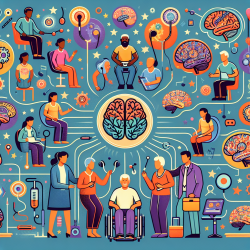Youth sports have long been recognized as a powerful context for promoting health, well-being, and social development. As a social worker, understanding the potential of sports in your practice can open new avenues for intervention and advocacy. The recent research on "Social Work and Youth Sport" highlights how sports can be leveraged to address mental health challenges, foster community engagement, and promote positive youth development (PYD).
Why Youth Sports Matter
Approximately 50% of children and adolescents worldwide participate in organized sports. These settings are not just about physical activity; they are fertile grounds for learning life skills such as teamwork, leadership, and emotional regulation. For socially vulnerable youth, sports can be a lifeline that offers structure, support, and a sense of belonging.
The research underscores the universal appeal of sports and their potential to influence health outcomes positively. Social workers can utilize this appeal to engage youth and families in meaningful ways that transcend traditional interventions.
Implementing Sport-Based Interventions
The research identifies several key strategies for implementing effective sport-based interventions:
- Social-Emotional Learning (SEL): Integrating SEL curricula into sports programs can enhance social skills among youth. Techniques like verbal reinforcements and tangible incentives have shown promise in fostering these skills.
- Training Coaches and Program Leaders: Preparing coaches with the right tools and training is crucial. Programs that focus on building self-efficacy among leaders can lead to more successful outcomes.
- The Five Cs Model: Emphasizing competence, confidence, connection, character, and caring/compassion can create more opportunities for positive development in youth athletes.
The Role of Social Workers in Youth Sports
Social workers are uniquely positioned to bridge the gap between sports and social development. By embedding themselves in youth sport contexts, they can advocate for equitable access, culturally competent coaching, and ethical practices. This involves not just working with the youth but engaging families, coaches, and communities in a collective effort towards positive change.
The Future of Sport Social Work
The field of sport social work is ripe with opportunities for growth and innovation. As practitioners, you can contribute by:
- Pursuing Further Research: There is a need for more studies on the impact of sport-based interventions on diverse populations.
- Advocating for Policy Changes: Work towards policies that ensure safe and inclusive environments in youth sports.
- Cultivating Partnerships: Collaborate with schools, community organizations, and policymakers to expand the reach of sport-based programs.
A Call to Action
This research serves as a call to action for social workers to harness the power of youth sports in their practice. By doing so, you not only enhance your professional skills but also contribute to the broader goal of promoting health and well-being among young people.
If you are inspired by this potential intersection between social work and sports, consider diving deeper into the research. To read the original research paper, please follow this link: Social Work and Youth Sport.










